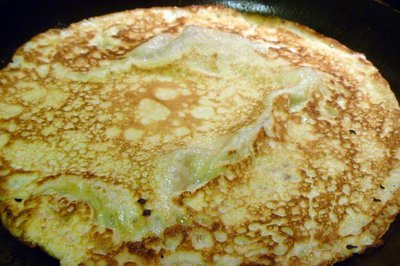Thoughts for the Day
Tuesday, 16th February 2021: Pancakes and preparation
Lent God Psalm 50
Reading : Verses from Psalm 50

The mighty one, God the Lord,
speaks and summons the earth
from the rising of the sun to the setting.....
Our God comes and does not keep silence,
before him is a devouring fire,
and a mighty tempest all around him.
He calls to the heavens above
and to the earth, that he may judge his people.
Offer to God a sacrifice of thanksgiving,
and pay your vows to the Most High.
Call on me in the day of trouble;
I will deliver you, and you shall glorify me.
(Church in Wales Lectionary, New Revised Standard Version)
Thoughts
Today, Shrove Tuesday, we know as 'Pancake Day'. It was originally known as 'Eastern's E'en', when it was the eve of a seriously kept fast that would last throughout Lent, which started the next day, until Easter. Shrove Tuesday was a day for feasting, at a time when there were no freezers. It was a day to eat all the good things that would not be seen on any days but Sundays for six long weeks.
Over the centuries it has had many names: Pancake Day, Guittit Tuesday, Bannock Night, and Doughnut Day. Whatever it's name, according to local custom, meat, butter, and other luxuries would have been eaten in great quantities on this day, before they were forbidden. In the early 19th century a Mrs Bray from Tavistock tells of how the local people considered it a great holiday. The great sport of the day was to assemble round the fire and each person to toss a cake before he had it for his supper. The people were then compelled to eat the pancake even if it fell into the fire.
So enjoy the pancakes, and begin to think how you might observe Lent this year.
Prayer
Lord God,
we thank You for the fun
of Shrove Tuesday.
Help us to remember
that the eating of pancakes
is the prelude to a time
of preparation leading to Easter.
Amen.
You might like to look up many more historical activities that happened on Shrove Tuesday, and it includes a pancake recipe: